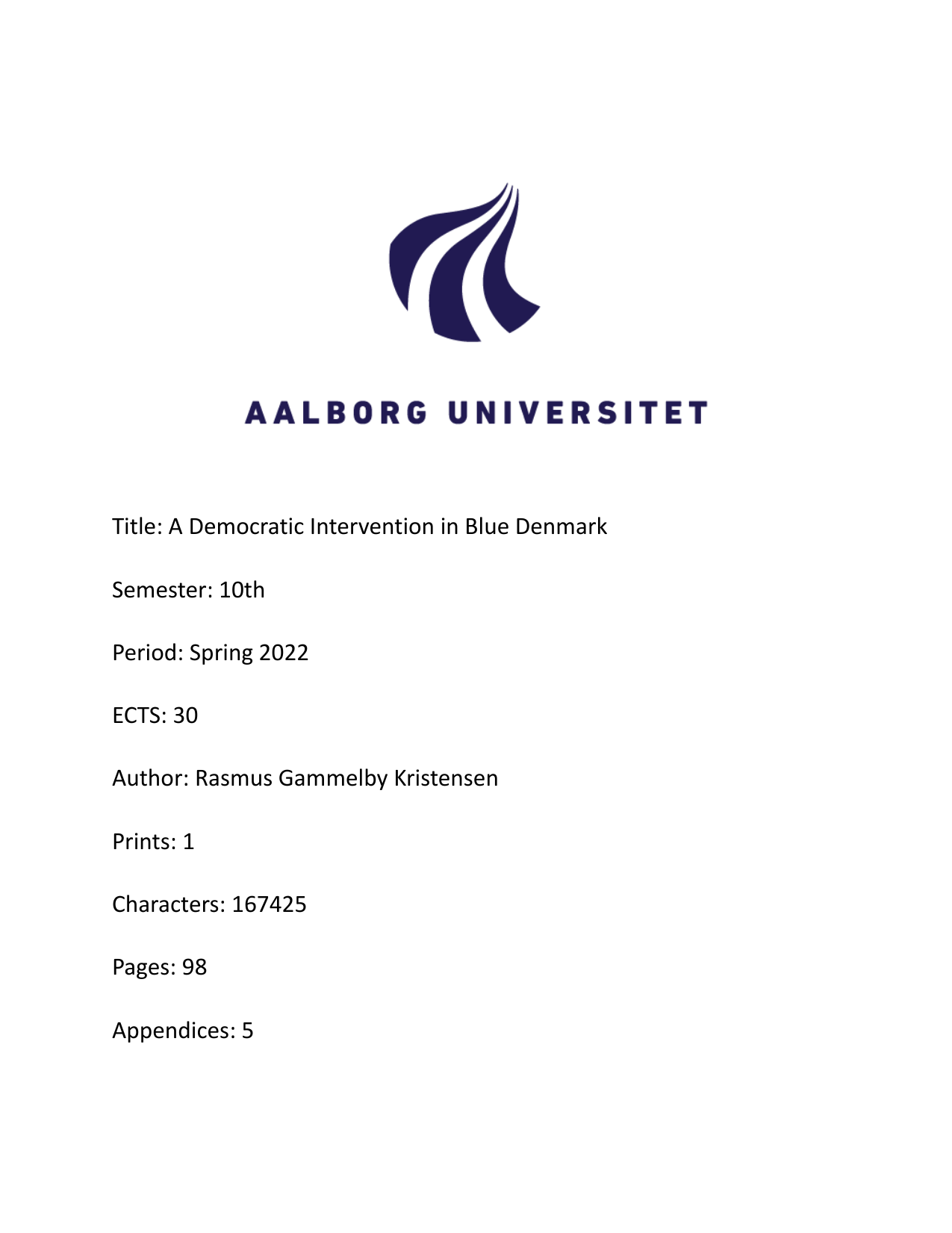
A Democratic Intervention in Blue Denmark: A call for neutral transdisciplinary facilitation and bridge-building across disciplines to enhance the possibility of a future capable of sustaining human lives.
Author
Term
4. term
Education
Publication year
2022
Submitted on
2022-06-01
Pages
98
Abstract
Abstract As the maritime industry encounters technical experts emerging en masse and governmental agencies mandating rapid transformation to be eligible to satisfy the criteria of the climate crisis, there will be a necessity for multidisciplinary awareness among all actors involved. As it can appear society looks to technological advancements to be the savior of our continued existence, the responsibility given to technology seems utopian and the purpose of technology seems forgotten. Although the term technology can seem ubiquitous it is defined as the use of tools to assist people to conduct tasks more efficiently. If technology is replacing any human practice then comprehending that practice must be as important as the artifact itself. Critical Theory of Technology suggests that technology can both emancipate as well as oppress people, it depends on how it is deployed and for what purpose. By broadening the understanding of technology to a system of human practices a holistic conception of how technology works in the real world can be achieved, thus enabling technical experts to construct more adaptable technology that can help us ensure a sustainable world for the future. This paper will explore the sites that constitute the multi-situated system of developing technology in Blue Denmark and investigate why incorporating the practices of users are absent. This will be executed through an anthropology-driven approach i.e. collecting data from sites and actors through ethnographic work. More precisely, the goal is to document the author’s experiences of being immersed amongst the actors of the system. Lastly, the project will formulate and suggest an alternative system structure to facilitate multidisciplinary collaboration.
Abstract As the maritime industry encounters technical experts emerging en masse and governmental agencies mandating rapid transformation to be eligible to satisfy the criteria of the climate crisis, there will be a necessity for multidisciplinary awareness among all actors involved. As it can appear society looks to technological advancements to be the savior of our continued existence, the responsibility given to technology seems utopian and the purpose of technology seems forgotten. Although the term technology can seem ubiquitous it is defined as the use of tools to assist people to conduct tasks more efficiently. If technology is replacing any human practice then comprehending that practice must be as important as the artifact itself. Critical Theory of Technology suggests that technology can both emancipate as well as oppress people, it depends on how it is deployed and for what purpose. By broadening the understanding of technology to a system of human practices a holistic conception of how technology works in the real world can be achieved, thus enabling technical experts to construct more adaptable technology that can help us ensure a sustainable world for the future. This paper will explore the sites that constitute the multi-situated system of developing technology in Blue Denmark and investigate why incorporating the practices of users are absent. This will be executed through an anthropology-driven approach i.e. collecting data from sites and actors through ethnographic work. More precisely, the goal is to document the author’s experiences of being immersed amongst the actors of the system. Lastly, the project will formulate and suggest an alternative system structure to facilitate multidisciplinary collaboration.
Keywords
Documents
